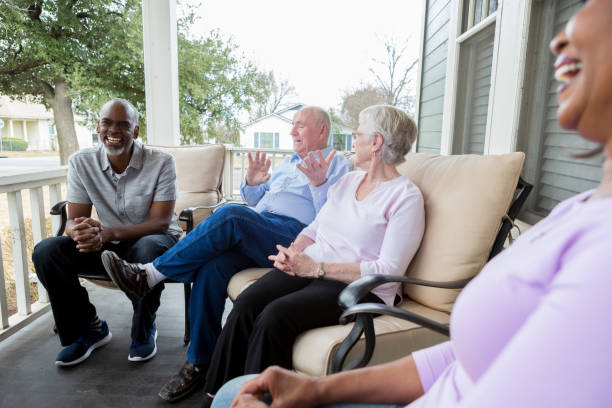“What do neighbors have to do with mental health?” If you’re asking that question, then you either don’t associate with your neighbors or you have good neighbors.
During this time of quarantine, when people are at home, neighbors have taken on a new meaning. There’s already another article in this blog about neighbors, but let’s look at how neighbors affect our health.
Grouchy neighbor

Our relationships with our neighbors affect our health more than we realize. Social researchers discovered a feeling of connectedness is a good predictor of happiness.
So, your neighbor is grouchy and likes to cause problems in the neighborhood, how does that affect your mental health and physical health?
I have a neighbor who likes to get a group text going with all the neighbors trying to start a fight. Most of us have had a neighbor like that in one point of our life. You have a sense of dread when thinking about this person. Your heart pounds, breathing becomes short, hands become sweaty, and stomach hurts.
Prolonged stress in having to deal with a bad neighbor actually can cause serious health problems if not addressed. Continuous stress has negative affects such as fatigue, inability to concentrate, irritability, worsening heart conditions, and depression.
Dealing with bad neighbors
My neighbors have “blocked” this trouble making neighbor on their phones. ‘Trouble making neighbor’ does not go outside, so this makes it easy to deal with this neighbor. However, since I’m the Property Owners Association (POA) president, I’m the one elected not to block her on my phone. Someone has to keep tabs on the “crazy person” in the neighborhood. It’s easy for me to ignore this neighbor.
There are several kinds of obnoxious people living among us. Loud, messy yards, people who like to meddle, people next door with barking dogs, loud kids, the list is long!
Most of the time a simple non accusing conversation can resolve the issues. But, what can be done when the simple approach doesn’t work?
- If you live in a POA or HOA you can refer to that neighborhood’s rules and regulations.
- If you do not have a POA/HOA, there still is legal actions and resources in place. Local ordinances and laws can prevent some types of behaviors.
- Most neighbor disputes can be resolved with the same resolution path. Talk things out first. If that does not resolve the issues, then approaching the POA/HOA (if there is one) and asking them to step in is an ideal next step. In the absence of an POA/HOA, your local government agencies may be able to help with specific complaints. When all else fails, you may need to speak with an attorney to settle disputes to discovery what options are available to you.
Happy neighbors, happy neighborhood
We set up a barbecue grill last night in the common area of our community. Each person brought a side dish and it’s now a block party while having our POA meeting!
This block party went a long way in the community bonding. Today everyone was outside working in their yard. Two of the men were working in putting up storage units in one of their garages. Laughter was heard throughout the community.
I worked on cleaning out some weeds that have grown in the creek feeding our pond. I wasn’t able to finish the work, but another resident stated that she would also help in removing the grass.
We are working as a group to beautify our surroundings. By pulling together, we’re accomplishing common goals.
I’m truly blessed with great neighbors who really are my friends. During this time of quarantine, people are outside in the natural surroundings of nature. The intentions are to eat healthier and drink less alcohol. (No alcoholics here, just people wanting to be healthier.)
So, what is the health of your community?



No comments